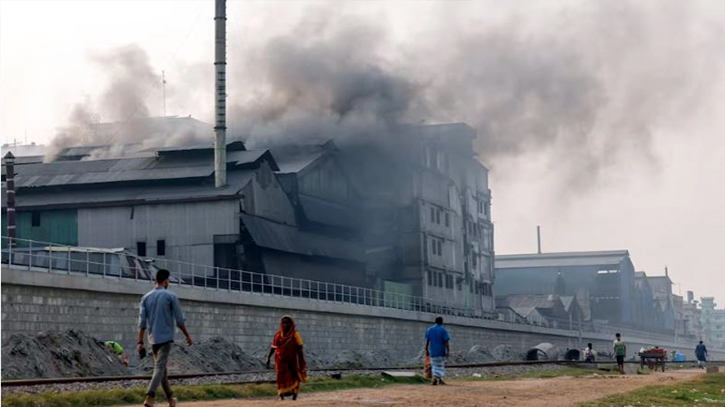
Photo: Collected
Air pollution was linked to 135 million premature deaths globally between 1980 and 2020, with the death toll spiking when unhealthy air coincided with climate events, a study led by Nanyang Technological University (NTU) has found.
More than 360 major air pollution events occurred worldwide in the 40 years studied. And of the 135 million premature fatalities in that timeframe, Asia had the highest death toll, led by 49 million mortalities in China and 26.1 million in India.
Weather phenomena like El Nino and the Indian Ocean Dipole worsened the effects of these pollutants by intensifying their concentration in the air, said Singapore's Nanyang Technological University (NTU).
The tiny particles called particulate matter 2.5, or "PM 2.5", are harmful to human health when inhaled because they are small enough to enter the bloodstream. They come from vehicle and industrial emissions as well as natural sources like fires and dust storms.
It found that people were dying younger than the average life expectancy from diseases or conditions that could have been treated or prevented, including stroke, heart and lung disease, and cancer.
Weather patterns increased the deaths by 14 percent, the study found.
Asia had the "highest number of premature deaths attributable to PM 2.5 pollution" at more than 98 million people, mostly in China and India, the university said.
Pakistan, Bangladesh, Indonesia and Japan also had significant numbers of premature deaths, ranging from 2 to 5 million people, it added.
The study is one of the most expansive to date on air quality and climate, using 40 years of data to give a big-picture view of the effects of particulate matter on health.
"Our findings show that changes in climate patterns can make air pollution worse," said Steve Yim, an associate professor at NTU's Asian School of the Environment, who led the study.
"When certain climate events happen, like El Nino, pollution levels can go up, which means more people might die prematurely because of PM 2.5 pollution," Yim added.
"This highlights the need to understand and account for these climate patterns when tackling air pollution to protect the health of the global population."
Researchers from universities in Hong Kong, Britain and China were also involved in the study.
The World Health Organization has said the "combined effects of ambient air pollution and household air pollution" are associated with 6.7 million premature deaths worldwide every year.
The researchers are also currently tracking Singapore’s air quality over the past decades to have a finer understanding of local air pollution patterns.
Messenger/Mumu








